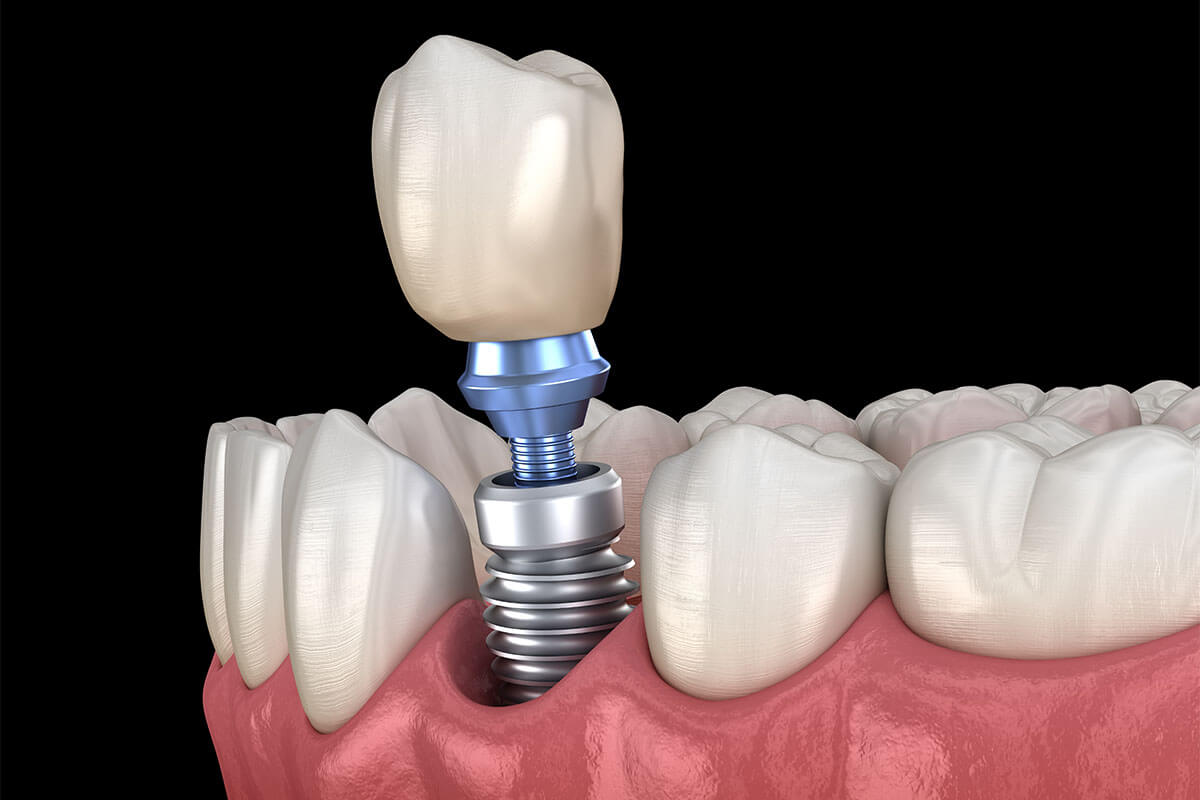
10
Oct
How Long Do Dental Implants Last, and Are They Worth the Cost?

When you lose a tooth and are considering your replacement options, one factor that will likely play into your choice is the cost. When you choose a dental implant, you are investing in your oral health. Because you will likely be responsible for at least a portion of the cost of your dental implant, it is only natural to want to know how long it will last.
Drs. Ben Whiting and Scott Stauffer at Whiting Dental in Mesa, Arizona, provide long-lasting dental implants for patients seeking “tooth replacement options near me.”
Here are some factors you should consider that can impact the longevity of your implants.
The Lifespan of a Dental Implant
A dental implant is composed of three parts: The implant, the abutment, and the crown. Each component has a different role and a different lifespan.
The Implant: While many look at the entire three-part setup as the implant, a dental implant is the screw or post, surgically embedded into the patient’s jawbone. A dental implant is typically made from titanium or zirconia. The implant acts as the root of a dental crown and can last a lifetime.
The Abutment: The abutment’s role is to hold the dental crown. It essentially acts as the connector for the crown to the implant. An abutment will typically last as long as the crown, lasting 10 to 15 years.
The Crown: This part of the dental implant is visible above the gumline and is designed to look and function like a natural tooth. Usually made of ceramic, the crown will fit over the abutment. The dental crown, because it will be subjected to everyday wear and tear, will usually last anywhere from 10 to 15 years.
The lifespan of a dental implant may decrease or increase due to other factors as well. The location of the implant in the mouth can also play a role. Implants which are replacing molars will be subjected to more use due to the fact you use these teeth for chewing. Implants in the front or your “smile zone” may not be used as much and so can last longer.
Make Your Implant Last
Proper oral hygiene is crucial to make your dental implant last. Those who practice good oral hygiene habits will see better longevity than those who neglect their teeth. If you want to make your dental implants last, brushing and flossing, as recommended by your dentist, is an important first step.
While a dental implant can’t develop a cavity, it can wear down when not cared for properly. If you are not brushing and flossing regularly, you are at an enhanced risk for gum disease, which can have a negative impact on your dental implant.
You will also want to make sure that you are visiting your dentist for regularly scheduled hygiene visits and exams. During this time, your dentist will include an examination of your implant. Any developing issues can be caught early this way, and the life of your implant can be extended.
If you are ready to learn more about dental implants, including the benefits they offer, how much they cost, and more, please reach out to Drs. Ben Whiting and Scott Stauffer at Whiting Dental in Arizona.
You may call our Mesa office at (480) 870-4400 and our San Tan Valley office at (480) 870-4499.
Share this Article

Dr. Whiting

Dr. Stauffer
At Whiting Dental, Dr. Ben Whiting and Dr. Scott Stauffer are committed to providing patients in and around San Tan Valley and Mesa, Arizona, with exceptional dental care right in their hometown. With a collective wealth of experience and extensive training in a diverse array of dental services, these highly regarded dentists have earned the trust and admiration of both colleagues and patients alike for providing modern dental solutions for the whole family. Renowned as board-certified dental professionals, Drs. Whiting and Stauffer seamlessly integrate cutting-edge advancements in dentistry with a personalized touch, fostering a relationship-driven, multigenerational practice.



